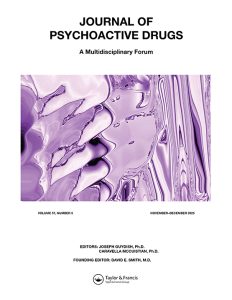- The Hero’s Journey and the Path of Recovery: Integrating Psychedelics into Traditional 12-Step Programs
- Stage One-The Ordinary World: Life in Recovery
- Stage Two-The Call to Adventure: Curiosity About Psychedelics in Recovery
- Stage Three-Refusal of the Call: Fear and Resistance in Psychedelic Exploration
- Stage Four-Meeting the Mentor: Guidance on the Path of Psychedelic Exploration
- Stage Five-Crossing the Threshold: Stepping Into the Unknown with Psychedelics
- Stage Six-Tests, Allies, and Enemies: Navigating Challenges, Stigma, and Antagonistic Views
- Stage Seven-The Approach to the Inmost Cave: Facing Deepest Fears in Psychedelic Exploration
- Stage Eight-The Ordeal: Confronting the Deepest Challenges in Psychedelic Healing
- Stage Nine-The Reward: Gaining Insight and Healing After the Ordeal
- Stage Ten-The Road Back: Integrating the Psychedelic Experience into Daily Life
- Stage Eleven-The Resurrection: Rebirth and Renewal After the Psychedelic Journey
- Stage Twelve-Return with the Elixir: Sharing Wisdom and Healing After the Psychedelic Journey
 The Hero’s Journey, a narrative framework popularized by Joseph Campbell, describes the archetypal path of transformation and personal growth. In this journey, the hero moves from the familiar world into the unknown, faces trials, gains new insights, and returns transformed. This cycle mirrors many personal journeys, including those of individuals in recovery from addiction, particularly within traditional 12-step recovery groups.
The Hero’s Journey, a narrative framework popularized by Joseph Campbell, describes the archetypal path of transformation and personal growth. In this journey, the hero moves from the familiar world into the unknown, faces trials, gains new insights, and returns transformed. This cycle mirrors many personal journeys, including those of individuals in recovery from addiction, particularly within traditional 12-step recovery groups.
For someone in a 12-step program who is contemplating integrating psychedelics into their recovery, the stages of the Hero’s Journey provide a powerful analogy for understanding this transformative process. Just as the hero must face challenges and return changed, those in recovery who seek to explore psychedelics as a healing tool may experience a similar series of stages in their own journey.
1. The Ordinary World: Life in Recovery
In the hero’s journey, the ordinary world is the starting point—the place of comfort and familiarity before any transformative experience. For someone in a 12-step program, this represents life in recovery, defined by the structure, support, and teachings of the program. It is a world in which they have found stability and healing through sobriety and the steps. However, for some individuals, this phase may also include a growing sense that something deeper is missing or that there is a call to explore a new dimension of their recovery.
2. The Call to Adventure: Curiosity about Psychedelics
Just as the hero receives a call to leave their ordinary world, those in recovery may feel a call to explore psychedelics as a tool for further healing. This could come from hearing stories of others who have benefited from using psychedelics therapeutically, or from an inner yearning to access deeper spiritual insights or resolve lingering emotional pain. The call is often accompanied by curiosity about how psychedelics might integrate into the structure of a 12-step program, which traditionally emphasizes abstinence from all mind-altering substances.
3. Refusal of the Call: Fear of the Unknown
In many heroic stories, the call to adventure is initially refused. Fear, uncertainty, and attachment to the safety of the ordinary world hold the hero back. For those in 12-step recovery, this refusal may manifest as fear of relapsing, concerns about contradicting recovery principles, or uncertainty about the legality and safety of psychedelics. The idea of venturing into unknown spiritual or emotional terrain through psychedelics can seem daunting, especially when the stability of sobriety has been hard-won.
4. Meeting the Mentor: Seeking Guidance
Before fully embracing the adventure, the hero often meets a mentor who provides wisdom, encouragement, or practical tools. In the context of recovery, this mentor could take many forms. It might be a therapist skilled in psychedelic-assisted therapy, a trusted friend in recovery who has successfully integrated psychedelics into their healing, or even literature and teachings that explain how psychedelics can enhance personal growth.
In traditional 12-step programs, mentors like sponsors may play a crucial role here, offering guidance on how to navigate this new curiosity within the framework of the Twelve Steps. A sponsor may not advocate for psychedelics, but can still provide support and spiritual insight, encouraging the individual to seek further education and thoughtful reflection.
5. Crossing the Threshold: Taking the Leap
At this stage, the hero makes the decision to step into the unknown and embark on the journey. For those in 12-step programs, this might mean deciding to explore psychedelics as part of their recovery. It’s an act of courage—choosing to trust that there is deeper healing available through this path. This step might involve participating in a psychedelic ceremony, exploring a therapeutic setting for psychedelic integration, or simply beginning to research psychedelics and their role in addiction recovery.
6. Tests, Allies, and Enemies: Navigating Challenges
Once the hero crosses the threshold, they encounter challenges, allies, and adversaries. For those in recovery, this stage can be particularly complex. On one hand, they might find powerful allies—psychedelic therapists, supportive friends, or communities like Psychedelics in Recovery (PIR) that provide safe spaces for those navigating both 12-step recovery and psychedelic integration. On the other hand, there may be inner and outer challenges—doubts about the decision, fear of rejection from the traditional 12-step community, or even confronting painful memories and emotions during a psychedelic experience.
This stage is about learning to navigate these challenges with wisdom and patience. Each test, whether it’s an emotional trial or external judgment, is an opportunity for growth. Allies in this phase are crucial to provide reassurance and guidance.
7. The Approach to the Inmost Cave: Facing the Self
In the hero’s journey, the “inmost cave” is where the hero faces their deepest fears and confronts their own limitations. For those using psychedelics as part of their recovery, this stage often occurs during the psychedelic experience itself. Psychedelics can bring deep-seated trauma, emotional wounds, and unresolved conflicts to the surface. This is the point where the individual must confront the aspects of themselves they have perhaps been avoiding or denying.
For someone in a 12-step program, this confrontation can be especially significant. Psychedelics may bring new insights into the causes of addiction, open up spiritual dimensions that have yet to be explored, or reveal truths about the self that are both enlightening and uncomfortable. It is a powerful and transformative moment—one where the individual is called to face their inner world with courage.
8. The Ordeal: The Crisis of Healing
The ordeal represents the most challenging moment in the hero’s journey—the point of crisis where transformation occurs. For those integrating psychedelics into their recovery, this might take the form of a difficult trip or confronting truths about themselves that challenge their existing worldview. In traditional 12-step programs, the ordeal might also involve reconciling the principles of the Twelve Steps with the insights gained from the psychedelic experience. It is an emotionally intense moment, but also one filled with the potential for profound healing.
9. The Reward: Insight and Healing
After surviving the ordeal, the hero receives the reward—new knowledge, insights, or powers that they can now use for good. In the context of 12-step recovery and psychedelics, the reward might be a new understanding of the self, greater spiritual connection, or the release of deep-seated trauma. Psychedelics have the potential to catalyze profound realizations about the nature of addiction, life, and one’s place in the universe. This reward is not just personal—it can be used to help others on their journey to recovery.
10. The Road Back: Returning to the 12-Step Community
In the hero’s journey, the return home marks the end of the adventure. However, for those in a 12-step program, this return can be complicated. After experiencing psychedelic healing, how does one integrate these insights into a community that traditionally emphasizes total abstinence? The road back might involve finding ways to align the lessons learned with the spiritual principles of the Twelve Steps, sharing the experience with others in the psychedelic recovery community, or becoming part of movements like Psychedelics in Recovery that honor both the traditional 12-step framework and the healing potential of psychedelics.
11. The Resurrection: A New Self
As the hero returns, they undergo a final transformation—a resurrection. In recovery, this stage represents the culmination of both the 12-step journey and the psychedelic healing process. The individual emerges with a renewed sense of self, integrating the lessons from both worlds. They have learned how to balance their sobriety with the profound insights gained from psychedelics, creating a more whole and authentic self.
12. The Return with the Elixir: Sharing the Wisdom
Finally, the hero returns with the elixir—the gift they now share with their community. For someone in a 12-step program who has integrated psychedelics into their recovery, this might mean sharing their experience with others, helping them navigate similar challenges, or becoming an advocate for psychedelic-assisted healing within the broader recovery community. The insights gained from the journey are not meant to remain hidden; they become a powerful tool to help others on their path of healing.
Conclusion: The Hero’s Journey of Psychedelic Integration
The stages of the Hero’s Journey offer a powerful analogy for someone in a traditional 12-step recovery program who is curious about integrating psychedelics into their recovery. It is a path filled with trials, transformations, and the potential for profound healing. Just as the hero must venture into the unknown and return changed, those in recovery who explore psychedelics can find new dimensions of healing that complement their sobriety and help them grow into a more authentic version of themselves. Through disintegration and integration, challenge and insight, they emerge as their own kind of hero—transformed, healed, and ready to share their wisdom with others.




